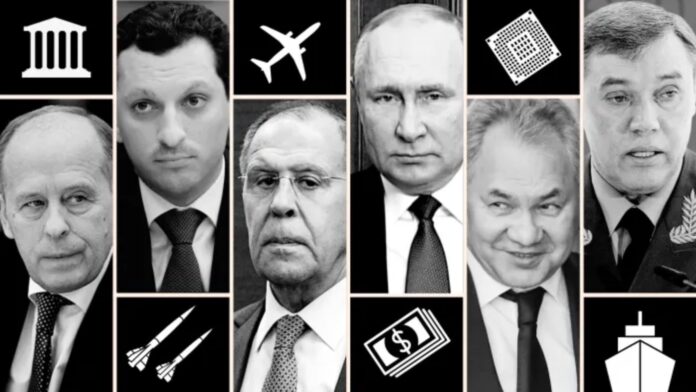![]()
In the last three weeks, life for many in the Russian Federation has taken an abrupt dive into uncertainty. Masses flock to the banks to withdraw billions in U.S. dollars, responding to the ruble’s drop in value of more than 40%. Hundreds of large multinationals, from Apple to IKEA, are ceasing operations and direct sales in Russia. Perhaps most crucially, prices for dietary staples and medications are surging without any indications of reverse.
The West’s strategy of economic isolation has clearly had a substantial impact which will only become more pronounced as the invasion of Ukraine continues. Despite surprisingly high support for the current war–a number placed at almost 60% by credible pollsters in recent days–dissatisfaction is quickly growing amid isolation from the outside world and skyrocketing prices for necessities like milk and oil. However, what will arise in the long-term from pushing a world power–one that comprises 11% of the Earth’s land area and numbers 150 million–to the brink?
This is not to say that economic isolation is a bad approach; in fact, it may have been the best. NATO is unwilling to risk the end of humanity as we know it through boots-on-the-ground conflict; at the same time, the West does not want to watch passively as the ambitions of a rogue actor reach ever closer to home. A combination of government sanctions and corporate decisions have thus struck a convenient balance, but even the best strategies have their potential consequences. So, assuming economic isolation and an avoidance of military engagement on NATO’s part remains, what could come of Russia in the months or years down the line?
1. Russia Becomes a Pan-Eurasian “North Korea”
In this scenario–which really deserves an article in and of itself–the Kremlin maintains its grip on the Russian populace through crackdowns on free speech and opposition as everyday life becomes increasingly distant from foreign influence. Although China has yet to reveal their unequivocal stance on the current crisis, it is possible that they could someday make the Kremlin’s job of handling popular dissatisfaction easier by increasingly replacing Western exports to Russia with their own.
As seen in the cases of North Korea and Iran, authoritarian outcasts of the international community care little about their already unmendable reputations and are thus prone to dangerous and erratic behavior. Acting without much, if any, regard for even their own populace, their neighbors live in constant fear of the regime’s next move and hopes for international cooperation are past the point of no return. Of course, one could argue that Russia has already checked out several of these boxes in the past decade; but if the Kremlin survives the current economic transformation, what would it have left to lose in its dealings with the West?
Put another way, Russia’s recklessness could reach a level similar to that of North Korea’s in the years to come as it is freed from the restraints of global interconnectivity. Worse yet, Russia is no North Korea, logistically speaking; it is a nation that boasts the world’s largest nuclear arsenal and spans nearly a third of Eurasia. Though sanctions evaded the short-term–albeit massive–costs of war, Europe and the West as a whole could now be risking decades of unparalleled fear and threats to security.
2. Putin Is Removed From Power
Despite looking less likely as the conflict persists, the possibility of Vladimir Putin’s removal is still in the cards. Russia is, once again, a massive and rather diverse country, so it is reasonable to wonder whether the Kremlin truly can manipulate or oppress its opposition into manageable subordination. Putin can try to evade blame for the tremendous rise in food and medication prices all he wants, but at the end of the day, his greatest weakness may very well be his decision to pursue dictatorship; maybe enough of the Russians who once gave Putin credit for all of the country’s success will soon blame him for the coming poverty as well. This begs the question, though: how much worse will economic conditions need to get? And, since a peaceful abdication is almost unimaginable at this point, how violent would a removal be?
Another frightening but necessary consideration is what would come after Putin’s removal–a thought that may eerily remind one of the dissolution of the Soviet Union and the worldwide anxiety that came with it. With over six thousand nuclear warheads entering the hands of a new regime or even going missing in a fray of domestic chaos, the removal of Putin and his cronies would immediately be a cause for concern in the West.
3. Something Else…
Perhaps Russia will wearily withdraw from Ukraine, implicating that it either cannot do without what the West has withheld from them or that the arduous invasion is simply no longer worth it. Alternatively, it could turn out that Russia will build a formal international alliance with China and others, igniting a new cold war rather than setting down a path of unabashed recklessness. Many times in the past few weeks have we been taken by surprise, scratching our heads at the headlines; it would be wrong to underestimate unpredictability in the unraveling of history.












